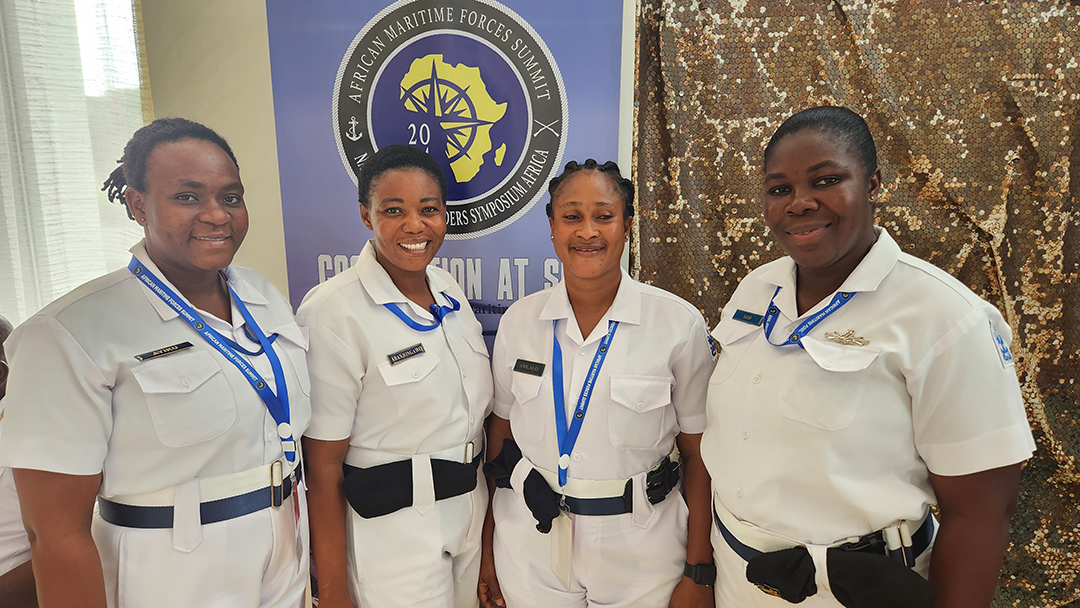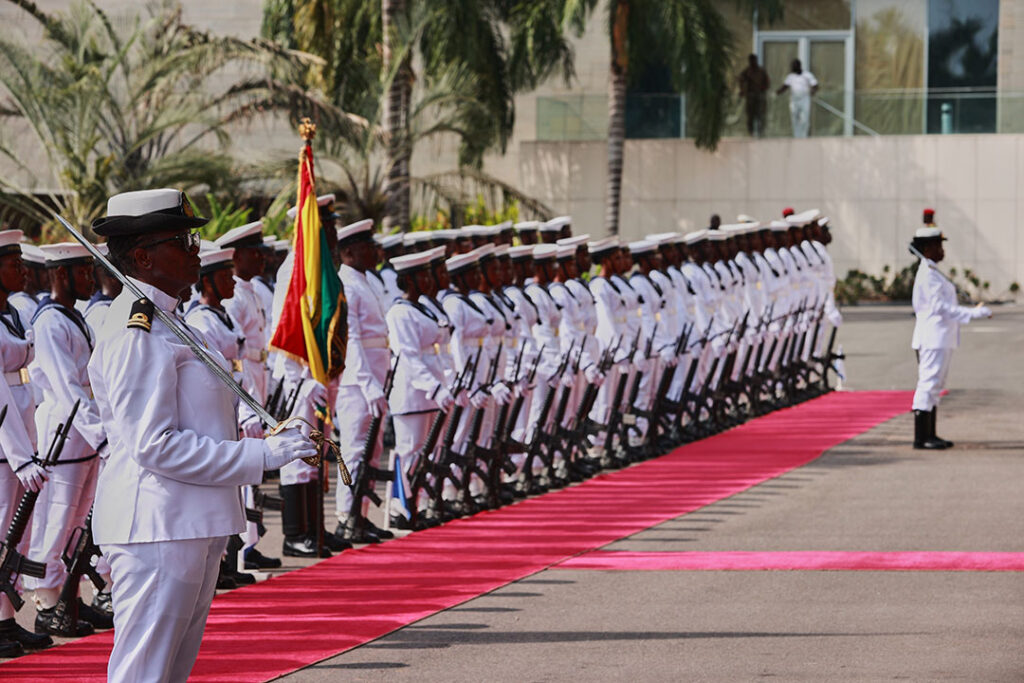ADF STAFF
Happy Delight Abajongawo was the first in her family to join the Ghana Armed Forces when she enlisted in the navy 15 years ago. She would like to see more follow her lead.
“We need more women in the military,” Petty Officer Abajongawo, a clerk, recently told ADF. “We should encourage females to join because it’s better to be in the military than to be at home not working. Being in the military, you are taking care of yourself and getting more opportunities.”
The Ghana Armed Forces (GAF) enlisted its first female member in 1958. Since then, women like Abajongawo have continued to don their country’s uniform in small but growing numbers.
The 16,000-person military is about 15% female. That number is significantly higher than the United Nations’ goal of 9% female participation for peacekeeping operations, but still behind the Ghanaian military’s own goal of having 25% female recruits by 2028 and eventually reaching a ratio that reflects the country’s nearly even gender ratio.
“Recruiting more women is to ensure the military reflects the society,” Rear Adm. Issah Yakubu, chief of Naval Staff for the Ghana Navy, told ADF in Accra. “Both genders bring different perspectives to the system. We want to give equal opportunities to all Ghanaians.”
In recent months, the GAF has recruited at local high schools in regions west of Kumasi, the headquarters of the GAF’s Central Command. GAF representatives spoke with 1,500 students, most of them young women, in the Ahafo, Bono and Bono East regions about the opportunities available in the military and to confront misconceptions about women’s roles.
The role of women was front and center in the Ghana Armed Forces when President Nana Akufo-Addo addressed the recent African Maritime Forces Summit and Naval Infantry Leadership Symposium Africa in Accra. The president’s honor guard was made up mostly of women.

Recruiters are particularly focused on increasing female enlistment in the military’s combat units, where they have been underrepresented.
Female recruits serve largely in administrative, medical and logistical roles, according to Group Capt. Theodora Agornyo, gender policy advisor to the chief of Ghana’s defense forces. Agornyo has been part of the team speaking to high school students about joining the military.
“In conflict situations and post-conflict situations when solutions are being found, women need to have a voice,” Agornyo told GTV Ghana recently.
Increasing women’s roles in combat units increases women’s presence on peacekeeping missions while also putting more women on a path to leadership positions, Agornyo said.
“Women should be at decision-making levels,” she added. “They should be part of leadership.”
With nearly 3,000 peacekeepers deployed, Ghana is the third-largest African contributor to peacekeeping on the continent after Ethiopia and Rwanda. According to the United Nations, female peacekeepers improve access to communities, particularly women and children who are victims of violence.
“Women peacekeepers are essential enablers to build trust and confidence with local communities and help improving access and support for local women, for example, by interacting with women in societies where women are prohibited from speaking to men,” the U.N. reported in an analysis of women in peacekeeping.
GAF launched its recruiting drive in 2023 after an analysis by the Elsie Initiative Fund in 2020 found that women were underrepresented in Ghana’s peacekeeping missions. The project aims to reach 20,000 high school students across the country. It has been aided by the Women, Youth, Peace and Security Institute (WYPSI) of the Accra-based Kofi Annan International Peacekeeping Training Centre (KAIPTC).
Petty Officer Gifty Sam, who has spent 17 years in the Ghana Navy, would be proud if any of her three young daughters followed her example and served their country in the military.
“You get respect everywhere you go once you are a military woman,” Sam told ADF.

